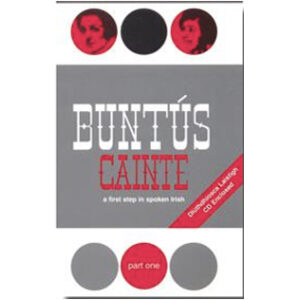Fáilte (Welcome) › Forums › General Discussion (Irish and English) › Amárach nó amáireach?
- This topic has 10 replies, 1 voice, and was last updated 11 years, 10 months ago by
Lughaidh.
-
AuthorPosts
-
June 20, 2012 at 6:43 pm #36299
Marcoman
ParticipantWhy do they write amárach, if the actual pronunciation is amáireach?
June 20, 2012 at 7:42 pm #42128Wee_Falorie_Man
ParticipantIt is definitely pronounced amáireach in Munster and I’m pretty sure it’s the same in Connacht. Maybe they say amárach in Ulster – I’m sure somebody will let us know pretty soon.
This reminds me of the word inniu which is pronounced like inniubh in Munster and Connacht.
June 20, 2012 at 9:24 pm #42129Lughaidh
Participantamárach and inniubh in Ulster… the 2 only Ulster things that have been chosen for the standard lol
June 20, 2012 at 9:37 pm #42130Wee_Falorie_Man
Participantamárach and inniubh in Ulster…
A Lughaidh,
Are you sure it’s “inniubh” in Ulster? That’s not how it’s spelled in standard.
June 20, 2012 at 10:00 pm #42131Lughaidh
ParticipantShite, you’re right, I meant “inniu”. Anyway, even if we spelt “inniubh” it would be pronounced the same way in Ulster, ie. uh-nyoo.
June 20, 2012 at 10:10 pm #42132Wee_Falorie_Man
ParticipantIsn’t “Dia duit” an Ulster thing, too?
It’s definitely “Dia dhuit” in Munster – and also in Connacht I think.
June 20, 2012 at 10:22 pm #42133Lughaidh
ParticipantYes it is, but I don’t think it’s too common in Ulster, people rather say “hallò” or “haigh” or “dè mar atà tù” etc.
Btw it’s the use of “duit” in Dia duit” that is Ulster : “duit” does exist in other places, but not in Dia duit.June 21, 2012 at 2:19 am #42135Cúnla
ParticipantCf. foclóir an Duinnínigh:
BáraÄ‹, m., to-morrow ; i mbáraÄ‹, to-morrow ; ar maidin i mb., next morning ; lá ar n-a ḃ. (lá har n-a ḃáireaÄ‹, Don.), on the morrow ; ar n-a ḃ., on the morrow (F. F.) ; ó ’ndiu go dtí i mb., from to-day till to-morrow, from day to day. (The nom. báraÄ‹ is not used ; the first syllable in the obliqe cases is pron. mbáir genly, but mbáraÄ‹ is still heard in N. Con.) ; arḃú i mbáraÄ‹, the day after to-morrow ; tá faid an lae i mbáraiÄ¡ ann, he is very tall.
([url=http://glg.csisdmz.ul.ie/flash/dico.swf]http://glg.csisdmz.ul.ie/flash/dico.swf[/url])
June 21, 2012 at 6:34 am #42136Lughaidh
ParticipantFor those interested, that old word “bárach” corresponds to the Welsh “bore”, which also means “morning” (and it’s “beure” in Northeastern Breton).
June 21, 2012 at 8:22 am #42137aonghus
ParticipantFor those interested, that old word “bárach” corresponds to the Welsh “bore”, which also means “morning”
Sin spéisiúil: Tá an dá chiall sin le Morgen na Gearmáinise & mañana na Spáinnise. (Agus “morrow” tráth sa Bhéarla más buan mo chuimhne)
June 21, 2012 at 8:25 am #42138Lughaidh
ParticipantNí hionadh ar bith é sin: an chéad mhaidin eile ó anois, beidh sí amárach 🙂
-
AuthorPosts
- You must be logged in to reply to this topic.
